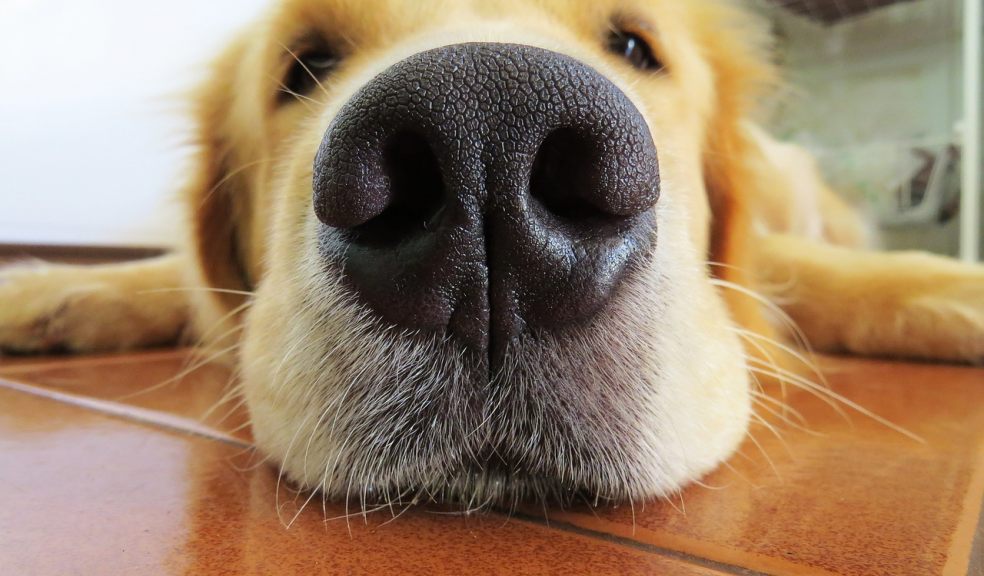
Pudgy pup? How to Help Your Dog Lose Weight
Did you know there are over 10 million pet dogs in the UK? We certainly love our pooches, but sometimes we love them too much. A study by PDSA found that over 40% of pet dogs are overweight or obese. While internet trends for 'chonky dogs' and 'absolute units' are everywhere, the reality is that an overweight dog is unhealthy.
If you are worried about the waistline of your four-legged friend, we have put together this quick guide to help you get them back on the road to health.
Make vegetables a tempting treat
Treats are the number one source of unnecessary calories for dogs. It's easy to show them you love them by throwing a crunchy morsel their way. However, many dog treats are the equivalent of a chocolate bar. They are designed to be super tasty but don't do much for you nutrition-wise. Eaten in small amounts, they are probably fine, but small amounts mean one a day instead of a handful a couple of times a day.
Replacing treats with raw or cooked veg is an ideal way to shave some calories off your dog's diet and give them a vitamin boost. If you are wondering if dogs can eat vegetables, here is a great little primer about what vegetables are safe for dogs to eat. Raw carrots, for example, have a great crunch factor; dogs that love to chew will adore them!
Read the labels
Not all dog foods are created equal. Just because the packaging is plastered with words like all natural and glossy-haired pups worthy of Crufts doesn't mean it is the best option for your dog.
A good rule of thumb when choosing a food is to check that you understand the ingredients. Ambiguous ingredients like meat and animal derivatives should raise some serious red flags. It means that either the recipe changes frequently (not ideal for your dog's digestion) or the actual ingredient is something that would make you go yuck!
Ideally, you want your dog's food mainly made up of ingredients you can pronounce (and know what they look like).
If you have recently changed to higher-quality food for your dog, you may be overfeeding them. High-quality foods tend to be nutrient-dense, meaning smaller portions are required. For dogs used to quantity over quality, this can be a tough transition, and they may be turning on the puppy eyes to get a bit more in their bowl… don't give in to their cuteness!
Get them moving
Exercise is the best way to keep your furry friend healthy. Not only will it help to shift those stubborn pounds, but it can also improve joint health and your pup's quality of life. If your dog is prone to destructive habits like chewing or being easily over-excited in the home, tiring them out with exercise can take the edge off.
If your dog tends to go outside to use the bathroom, start small, aim for two or three thirty-minute walks a day and build from there. Walking the streets around your home isn't the only option. Use this need for more movement to get exploring. Visit local country parks for a change of scenery. You might find that a dog that needs to be dragged around an urban area has a change of heart when faced with woodlands or a beach walk. Speaking of beaches, swimming is another great way to exercise your dog; look for dog-safe rivers and beaches. There are also dedicated swimming pools for dogs scattered across the country.
Visit the vet
Most of the above tips are common sense and not wildly different from the advice we'd give to people wanting to lose a few pounds; Move more and eat less but better. However, just like with people, there can sometimes be underlying medical causes that make losing weight not quite that simple. If you are concerned that Rover's rotund figure is not just down to a serious love of the couch and your table scraps, a visit to the vet might be in order.
Health conditions that can cause your dog to gain weight can include:
- Diabetes
- Cushing's disease: A serious but controllable endocrine disorder
- Pregnancy: If your dog is not spayed, this is work getting checked out
- Stress: Just like us, dogs can find comfort in food
- Medication: If your piper is already on medication, check that weight gain isn't a side effect
- Thyroid Disease: Hypothyroidism most often presents with rapid weight gain along with a dull coat and oily skin
If you are fairly confident that the weight gain is purely due to a sedentary lifestyle and one too many treats, a vet's visit might still be worth it. Your vet can tell you your dog's recommended healthy weight, and they may also have breed-specific pointers to help the pounds melt away.
Like humans, weight loss doesn't happen overnight and needs to be done sensibly and thoughtfully. Instead of thinking of it as putting your dog on a diet, see it as a lifestyle change. Permanent gradual changes will be more beneficial in the long run than drastic short-term ones.
We hope this post has been useful in getting you and your canine companion energised and excited about the new lifestyle ahead!



















